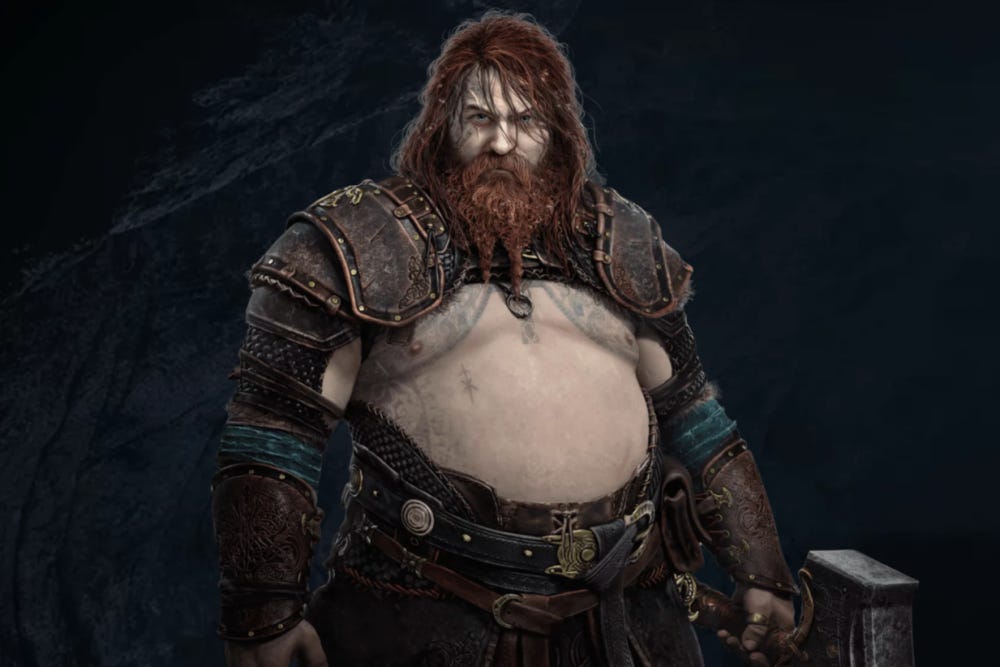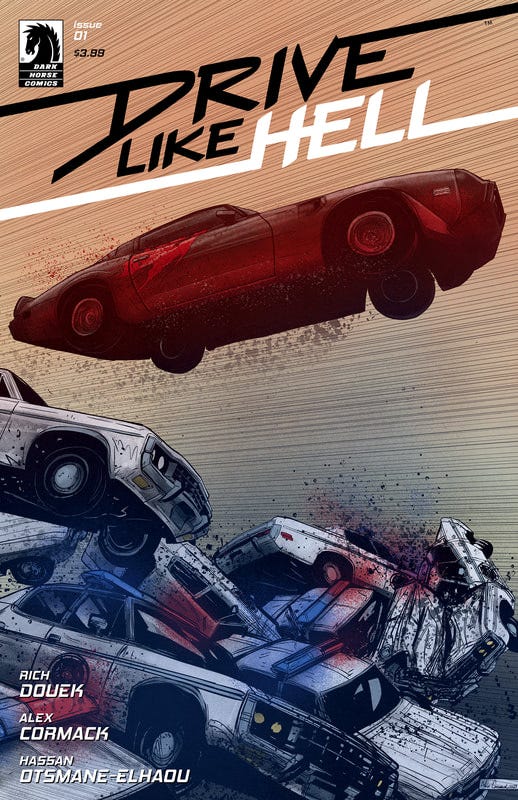Hey Everyone!
I have a few hobbies to keep me busy in between scripts, and video gaming is one of them. Having recently gotten a PS5, I’m catching up on some games I missed, and right now I’m enjoying the hell out of God of War: Ragnarok.
For those that don’t know, Ragnarok, and the previous title in the series, are about Kratos, the titular Greek god of war who slew Ares in the original games, now living in self-imposed exile in the north, and interacting with Norse mythology and trying to raise his son, Atreus, on his own.
Thor is in it, too.
It’s a really fun game, but the reason I’m writing about it is because of how well written it is when it comes to one of its main themes: Fatherhood.
And with Father’s Day having just passed (I had a great one!), it seemed like a good time to wax philosophical about the subject.
Dark Fathers
When I think of the fatherhood story that’s most famous, most resonant in geek/pop culture, I think of this guy, in this scene:
And that’s not exactly a ringing endorsement of the whole concept. While there are obviously in-story reasons, when you look at Darth Vader/Anakin Skywalker, what is he, but a mythical expression of an absentee father? The cat’s in the cradle, even in a galaxy far, far away.
For a generation of people who grew up with fathers who ran off, or were so dedicated to their jobs, they hardly ever saw their kids, it’s an archetype that really resonates and hits hard - and for all of us that grew up with that, the reconciliation and redemption that happens in Return of the Jedi is almost like wish fulfillment of how we might repair our own relationships.
But God of War has a different take on fatherhood, one that resonates just as powerfully now that I’m a father myself - I find myself on the other side of the relationship, where instead of identifying with the son, in Luke, I’m identifying with the father, in Kratos

Whereas Darth Vader is the absentee father, Kratos is painfully present. He’s a man who struggles to connect to his own son because of who he is as a man - and all the scars he bears from his own relationships with his own father and family.
What should be the easiest connection in his life is instead the hardest, the most fraught with frustration and pain - because he has no idea how to provide the things he never got himself, and is just doing the best he can.
And I really do resonate with that because it mirrors a lot of my own experiences as a father - trying as hard as I can to connect with my kids but finding that its not as easy as it looks on TV, and no matter how many copies the latest self-help book sold, there’s no instruction manual. And learning that there’s no easy way to break free from your own past - but for the sake of your children, you have to try.
I see that coming up in my work a lot lately, in the projects I’m mulling over, and pitching in some cases - one in particular that’s all about family dynamics, fathers and sons, and the difficulties they often run into just trying to understand each other.
Writing from the Heart
Looking back at my body of work, that’s one thing I’ve realized - if I’m wondering why I chose a certain theme for a story, I really just have to look at what was going on in my life at the time. It’s really easy to see in some projects, harder in others, but its always there.
When I was writing Gutter Magic, I was trying to make a change in my advertising career - from graphic design to copywriting - the issue I kept running into was people weren’t giving me an honest chance, because I hadn’t gone to school for it at a well-known ad program, like SVA or VCU Brandcenter.
I was feeling like I had this potential to be really great at something, but being held back by circumstances I couldn’t control - I didn’t have a time machine to go back and pick a different college.
So it came out in Gutter Magic - the story of Cinder Byrnes, who wanted nothing more than to be a wizard - but didn’t have magic in his blood. So he fought, and scraped, and stole, and worse, to get that power. And while I didn’t break any laws getting into copywriting, I fought just as hard, and inch by inch, I got there.
A more recent example is Drive Like Hell - the story of a guy who is being told to do something by all the forces that hell, and heaven itself can muster - and decides to go his own way instead.
And when I think of how that relates to my own life, I wrote it coming off of writing the trilogy of Road of Bones, Sea of Sorrows, and Breath of Shadows, my three most well-known and popular works. And I was feeling a lot of pressure to keep pitching nothing but horror - I wrote it well, after all. It was what everyone was looking for out of me.
And yet, I decided to go my own way. Maybe it was a dumb move, career-wise. I don’t know. Maybe I should have stayed in the lane laid out for me. But when I think of the artists and creators I admire most - people like David Bowie, Lou Reed, or David Lynch, sticking to the one thing they were known for was never part of the equation. They were always going where nobody expected them to. Sometimes it worked out. Sometimes it didn’t.
The point?
My point with all this is that for work to resonate, it needs to be personal. It needs to be personal whether it’s a real-life family drama, a spaceborne epic, or a fantasy with dragons, trolls and wizards. And while I may not always have realized it at the time (what exactly was going on in my life that spurred Road of Bones? lol) – every piece of work I do has a piece of me in it. And it’s made with the hope that you can find a piece of you in there, too.
And I mean, what is art, if not that?
No new updates work-wise, will hopefully have more to share on that front next time.
Until then, wishing you all the best.









